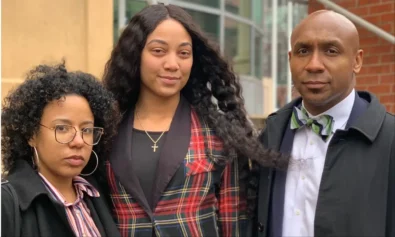Moderated by Tom Sabulis
Workforce diversity is an issue in Fulton County, where the population is 48 percent white and 45 percent black, but where 83 percent of the county government’s 5,500 employees are black. The Fulton County chairman addresses the imbalance, and a lawyer with experience in employment cases outlines what county — and state legislators — can do to remedy it.
How to Fix Fulton, Balance Workforce
By A.C. Lee
Fulton is our state’s keystone county. It has been a pivotal player in achieving many of the milestones that put metro Atlanta on the map — the Olympics, the stadium that made the Braves and Falcons a reality, MARTA, and the essential work done at Grady Memorial Hospital. So why have so many of its citizens abandoned it to start new cities that hold the promise of delivering more efficient governance? And why does Fulton face extinction at the hands of its own state legislative delegation?
The answer is complicated, but race, as is often the case in the South, is front and center in the conversation. Despite the exodus of its citizens through the cityhood movement, the county work force has not shrunk proportionally. It is also disturbing that a county that is majority white maintains a work force that is 83 percent black.
In response, the county points to a largely black applicant pool. It throws up its hands and says it can only hire those who apply. But when you peel back that onion, you find an affirmative action program that remains in force long after it makes no sense other than as a political sop to Southside voters.
There is no meaningful anti-nepotism policy to prevent black managers from hiring and promoting family members, exacerbating the racial imbalance. A river of litigation is driven by claims of reverse discrimination and unlawful retaliation against those who complain about the race-based decision making.
To save itself, the county must develop a smaller, more diverse work force with skills tailored to its more limited role by doing the following: end affirmative action in hiring, promotions and public contracting; pass a rigorous anti-nepotism policy; mandate arbitration of all claims related to discrimination and get out of the litigation business; and solicit the advice of resident corporations regarding how they maintain productive, globally diverse work forces.
It will not be enough to simply hire more white workers; the county must retain them. Workers stay because they are valued, fairly compensated, and have a fair opportunity for promotion in a work place that is reasonably close to home. Fulton needs to weed out incompetents to create opportunities for advancement, and decentralize its workforce by adding work venues that are more accessible to its constituents and closer to the North Fulton homes of the white workers it needs to attract.
What won’t work is the cannibalistic approach taken by the Fulton County delegation in the last state legislative session. The thinly veiled attempt to re-animate the ghost of Milton County so whites and blacks can have their “own” counties was racist and short sighted. Some of those bills won’t pass legal muster, like the gerrymandered alteration of commission district lines to get more whites elected. But others will survive and deprive the county of the tools it needs to remake itself.
The state delegation needs to work cooperatively with Fulton’s leaders. In turn, the county should acknowledge past sins and make peace with its state delegation. A new day can be had only if our leaders have the vision to see it.
A. Lee Parks, a senior partner at Parks, Chesin & Walbert, is a lawyer specializing in employment, constitutional and voting rights law.
Read More: blogs.ajc.com


